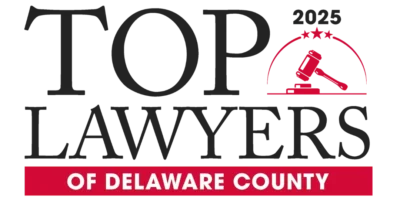Car accidents can be injurious and deeply upsetting, especially if you don’t know how to handle the insurance process in the aftermath of an accident. If handled improperly, your claim on medical costs and vehicle repair could be at risk.
The first and most important thing to understand is that insurance companies don’t like issuing claims. Minimizing claims is how they stay in business. No matter how sympathetic your agent may be, it is vital to follow a few specific steps when dealing with insurance after an accident. Fortunately, you’re not alone. As car accident lawyers, Larry Pitt & Associates can help you navigate this difficult time to see the best possible outcome.
Knowing Your Rights
First, know your rights and your insurance policy. Your policy likely outlines what types of damage are covered and how much your insurance will cover for each type of expense. It can help to write it out or make a chart to help you clearly understand your coverage.
From there, after an accident, you have the right to:
- Seek immediate medical care and follow-up care.
- File an insurance claim
- File a personal injury lawsuit
- Seek compensation for property damage
Your insurance company is obligated to:
- Investigate the accident
- Negotiate in good faith
- Pay your rightful settlement
Steps To Take Immediately After an Accident
What should you do immediately after an accident, both for yourself and your future insurance claim?
- Safety First: Secure the scene. Get out of the road, check everyone for injuries, and call for emergency medical services if necessary.
- Do Not Say “I’m Sorry”: Apologizing can be construed by insurance or police as admitting fault for the accident. So, carefully avoid it.
- Documentation:
- Collect your own evidence of the scene.
- Take photos
- Collect witness contact information
- Get the driver’s license and insurance details from the other driver
- Notification: Once everything else is done, report the accident to your insurance company.
Navigating the Claims Process
Initial Contact
During the first call with your insurance, they will ask a few routine questions about how it happened, the injuries, and the damage after. Remain calm and give just-the-fact answers. Do not take or lay blame.
Filing a Claim
- You will need to go online to complete your claim filing.
- Use the information you gathered at the scene.
- Necessary documentation may include:
- Photographs
- The other driver’s information
- Your written perspective of how the accident happened.
Claim Adjustments
The claims adjuster is an investigator who will arrive to learn more about the accident, but their ultimate goal is to reduce the total claims the insurance company must pay.
Prepare for the adjuster’s visit by organizing evidence, keeping records of your medical bills and injury status, and avoiding anything that might indicate or suggest you were an at-fault driver in the situation.
Communicating With Insurance Companies
When talking to the insurance companies, keep your cool and provide just the facts.
What to share
- Provide a simple actions-based account of what happened.
- Provide medical documentation of your injuries and the injuries of your passengers.
- Provide clear records and receipts of expenses, including medical bills and car repairs.
- Answer questions directly and simply.
What not to share
- Don’t talk about your emotions or state of mind.
- Don’t say “I’m sorry” at any point as this could be taken as admitting guilt.
- Don’t share what you were talking about in the car right before the accident.
- It’s OK to say “I don’t know” or “I don’t remember”
Also, if the insurance company suggests you see one of their doctors, refuse. Only go to your doctor or an unrelated 3rd party doctor. Insurance doctors are often incentivized to provide minimizing diagnoses and recovery plans.
Understanding Settlements
Insurance companies calculate settlements based on the losses you incur and, often, your percentage of fault in the accident. However, their primary goal is to deny settlements and minimize payments.
To negotiate a fair settlement, you may need to push against the insurance company’s first offers and avoid their attempts to minimize your situation.
- Don’t accept their first settlement offer. Ask for more.
- Don’t let them minimize your injuries or the recovery costs you may need in the longer term.
- Don’t let them undersell the costs of your vehicle repairs.
- Don’t let them paint you as an at-fault or partially at-fault driver without concrete evidence.
Maintain that you deserve the full value of your policy as regards the full cost of your medical care and vehicle repairs.
When To Seek Legal Assistance
Do you need a lawyer after a car accident? Here are a few signs:
- Insurance companies are trying to pin you as at-fault or partially at-fault
- You are too injured to stand up for yourself in negotiations
- The insurance company won’t offer you a fair settlement for your medical expenses
The car accident attorneys of Larry Pitt & Associates can help by standing up for your right to a fair settlement despite the insurance company’s goals or agenda. We will appeal your offers, collect further evidence, and ensure that you get the settlement you deserve based on your policy and situation.
Defend Yourself From Insurance Trouble After a Car Accident
If your insurance company has suddenly become the bad guy after you’ve been in a car accident in Philadelphia, PA, you are not alone. Larry Pitt & Associates will defend you whether you are being falsely accused of at-fault driving or you are too injured to defend your right to a full settlement. Contact us today for your consultation.


















